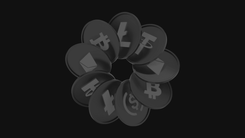NFT Today: Where to Use and Earn (Beyond Art)
Just a few years ago, NFTs seemed synonymous with digital art: flashy picture sales, million-dollar deals for avatars and memes, auctions, and famous names from the collectibles world. However, the market has changed rapidly. NFTs have transformed from hype into a technological tool with real use cases in business, finance, and even logistics.
Today, we will explore how the NFT market is evolving beyond art and where you can earn with this technology.
What Are NFTs — in Simple Terms
NFT (non-fungible token) is a unique digital asset on the blockchain that verifies ownership of something. Unlike Bitcoin or Ethereum, where each token is identical, an NFT represents something unique — a product, contract, ticket, or access right.
This uniqueness unlocks vast opportunities for using NFTs far beyond art.
Where NFTs Are Used in 2025
1. Gaming and Virtual Worlds
One of the largest sectors for NFT adoption is the gaming industry. In popular projects like Illuvium, Gods Unchained, or The Sandbox, NFTs are used as in-game assets: characters, weapons, land.
Importantly, these tokens are not just cosmetic — they are fully functional assets that can be resold on open marketplaces. Some players earn money by participating in tournaments or renting out their virtual property.
Example ways to earn:
- Buying early-stage NFT land in popular games;
- Participating in closed tests and flipping assets after prices rise;
- Selling rare in-game items on secondary markets.
2. NFT Tickets and Event Access
The world of offline events is also evolving. More conferences, concerts, and sports events are moving to NFT tickets. This benefits organizers (protection from counterfeits and scalping) and creates extra value for attendees.
Examples:
- An NFT ticket grants access to a concert and discounts on merchandise;
- A ticket turns into a collectible token that can be resold;
- Long-term subscriptions with unique perks are issued via NFTs.
3. Financial Instruments
NFTs are entering the DeFi (decentralized finance) sector:
- Loan collateral: NFTs can be used as collateral for borrowing;
- Liquid staking positions: e.g., ETH staking positions tokenized as NFTs;
- Trading derivatives: futures and options issued as NFTs with fixed terms.
This format makes financial instruments more flexible and liquid than classic lockups in DeFi protocols.
4. NFTs in Real-World Business
Major companies are using NFTs to build loyalty programs and engage customers:
- Starbucks launched Odyssey, where NFTs unlock exclusive perks;
- Nike is testing NFT sneaker drops, with every limited release tracked on-chain;
- Car dealerships issue NFTs for premium models, offering purchase bonuses.
NFTs are becoming a universal digital pass to loyalty programs and customer rewards.
5. Real Estate Tokenization
One of the most promising areas is real estate tokenization via NFTs. What it means:
- NFTs digitize ownership rights for shares in property;
- Allows fractional real estate investing, renting, or reselling via smart contracts;
- Simplifies access to real estate investments for retail investors.
Successful cases are already seen in Dubai, the US, and Singapore.
Where to Earn with NFTs
In 2025, earning from NFTs means avoiding hype and focusing on stable, liquid tools.
What works:
- Participating in early sales of functional NFTs: gaming tokens, tickets, DeFi instruments;
- Flipping rare collectibles with active communities;
- Investing in liquid NFTs generating yield (e.g., rental tokens in games).
What does not work:
- Blindly buying avatar NFTs with no clear use case;
- Investing in illiquid NFTs.
How to Reduce Risks When Working with NFTs
To avoid scams, it’s essential to:
- Verify the smart contracts of collections;
- Use trusted wallets and marketplaces;
- Avoid shady airdrops and giveaways.
A smart solution is using a secure wallet with Web3 support.
For example, EMCD Wallet supports NFT storage while keeping full control of keys with the user. You can safely store your tokens, participate in airdrops, and interact with decentralized apps without data leak risks.
Conclusion
NFTs have evolved far beyond digital art. They are now a full-fledged financial tool used in business, finance, and entertainment.
Key directions in 2025:
- In-game assets with real returns;
- Tickets and loyalty programs;
- Loan collateral;
- Real estate tokenization.
NFTs are not just a trend — they are a practical tool for anyone wanting to be at the forefront of the digital economy. The key is choosing assets with real use cases and storing them safely in wallets like EMCD Wallet.




